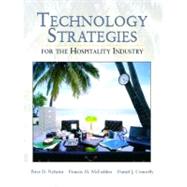
Peter D. Nyheim is an instructor of technology in Drexel University's Department of Hospitality Management.
Francis M. McFadden is an associate professor in Drexel University's Department of Hospitality Management.
Daniel J. Connolly is an assistant professor in Hotel, Restaurant, and Tourism Management, and Information Technology and Electronic Commerce at the University of Denver.
| Preface | |
| Foundations | |
| Why Information Technology? | |
| Using Hospitality Information Technology for Competitive Advantage | |
| Computing Essentials | |
| Networks and Security | |
| Hospitality Information Systems Applications and Strategy | |
| E-Business and E-Commerce Systems | |
| Restaurant Management Systems and Associated Technologies | |
| PMS and Interfaces | |
| GDS/CRS | |
| Databases and Managerial Support Systems | |
| The Power of Information | |
| Strategic Hospitality Technology Investment | |
| Glossary | |
| Index | |
| Industry Reference Web Pages | |
| Appendices (HITIS, Yield Management/CRM, RFP) | |
| Table of Contents provided by Publisher. All Rights Reserved. |
The New copy of this book will include any supplemental materials advertised. Please check the title of the book to determine if it should include any access cards, study guides, lab manuals, CDs, etc.
The Used, Rental and eBook copies of this book are not guaranteed to include any supplemental materials. Typically, only the book itself is included. This is true even if the title states it includes any access cards, study guides, lab manuals, CDs, etc.